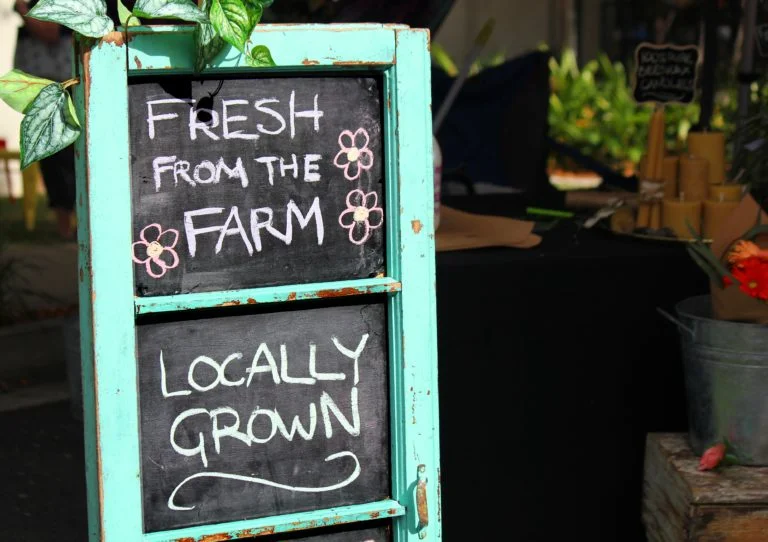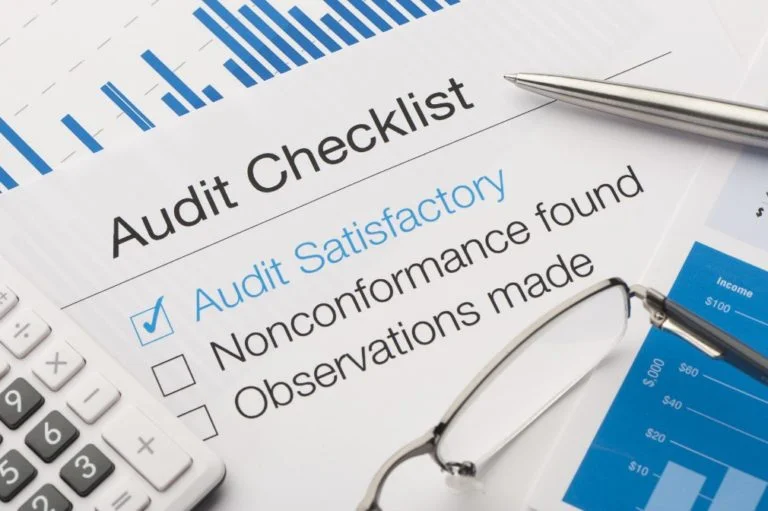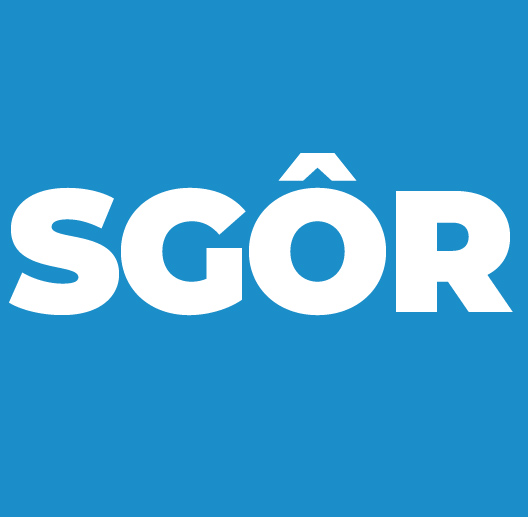If you have a small business, you know that it’s important to stay relevant amongst your customers. In todays society, the easiest way to be noticed amongst a crowd of other similar businesses is to connect with your customers online using social media, this way you’re meeting your customers in a more organic way, it gives you a chance to allow the customers to get to know your brand, it’s values and important offers, discounts and product updates. But it’s not just about being present on social media, you also need to know which platform(s) work the best for your business!
The Importance of Social Media
Research shows that individuals spend more time on social media, 53.6% of the population is active on social media, so of course, with that many people on social media, you need to make sure you’re out there! People on social media use social media to stay in contact with friends, family, and find something relevant to them; like a whole community of like minded individuals for example, or perhaps even get help with a problem. Today, there are more than 2.2 billion social media users online, which is a huge community of potential customers!
54% of customers also use social platforms to research products or a business, this means that a customer is likely to try and find your online media platforms before visiting your store or making an online purchase.
The Social Media Landscape for Businesses
Small businesses often find themselves confused over which platforms they should use and which ones they should ignore! You could be missing out on opportunities to connect with potential new customers and create a valuable online community. So, let’s look at what are the most important platforms for small businesses today. This article is mainly going to concentrate on the major social media giants like Facebook, Twitter and Instagram, however a lot of the social media platforms that are growing in popularity are worth a mention here too.
It’s important to understand that whilst one social media platform may work wonders for one business, it may not work at all for another, finding which social media platform helps get you the most connected to your customers is key when it comes to social media marketing.
Facebook still remains the most widely used social media platform, with over 68% of social media users confirming that they are on Facebook regularly, with over 2.3 billion active monthly users, it likely that a considerable portion of your potential customers will be on Facebook.
On Facebook, your business will be visible to your followers and potential customers with the shared content that you put out there for them to see. This is the perfect platform for using ads to attract customers or build a customer relationship. Use visual social media to tell a story, share company-specific deals and achievements, offer free giveaways and fun posts.
Many small and local businesses may choose to have a Facebook account rather than a website, this can work in the short term, but we always encourage business owners to consider having a website alongside a healthy and consistently active Facebook account, this promotes trust and authority with your company and will allow customers to see your business as reliable. Having a website will increase your trust with your customers & with new Facebook users, although it is not 100% essential.
Important things to look at when operating on Facebook : These following sections are details that local businesses can focus on whilst building their Facebook profile, you’ll want to optimise these and use these to direct your customers to your online store, or physical location.
- ‘About Us’ Section
- Use Keywords strategically
- Contact Information
- Use Your Call To Action Button
Tip: A Facebook Pixel is an attachment that you can install on your account, this is to help you grow your audience and also help you receive more business. The addition of these social signals can be beneficial for businesses.

Twitter’s greatest strength is its simplicity, it doesn’t require much customer engagement as it’s so easy to use and has a simple interface. In fact, according to Ecommerce Week, 90% of all business owners who have used Twitter said they would recommend it to their business.
This doesn’t mean it’s an easy platform to use, Twitter was the first social media site of its kind when it launched and, unlike Facebook or Instagram, there’s no way to post to multiple accounts. In fact, it’s actually quite hard to figure out the best hashtags to use on Twitter, there are so many and it’s easy to end up posting the same one as your competitors.
When it comes to twitter, the best posts to share tend to be informational and straight to the point, with the character-cap you won’t have the space to write lengthy paragraphs about your business or your recent activities like you may do on other social platforms. Twitter is best to share your recent blog updates along with a few short sentences and 1-5 well performing hashtags.
Hashtags on twitter are the life-blood. They’re almost as important as your actual tweet, unless you have an already existing large following on twitter, it’s likely that people and customers will find your through searching for the related hashtag. This is where competitor analysis comes in, find out what your competitors are using on twitter, and if it’s working for them.
Twitter seems to be the best social media platform for already established and well known brands, it’s a means of reaching thousands of users and interacting online with simple communication, it almost adds a personality to your business.
Unfortunately if you’re not that big of a recognised brand you may find it difficult to achieve results on twitter, however some of the best things a smaller business can do on twitter is set goals, whether that’s to increase direct sales through shares of discounts, offers and product updates, tracking trends through hashtags and attempting to infiltrate the trends by remaining relative and vocal, or becoming a customer support channel that interacts with your customers, reaching out and responding to any related comments.
Instagram is one of the most popular social media platforms, especially among millennials. Instagram is a visual-centric platform that focuses on videos and images, unlike the other social media platforms where you’re posting text-heavy posts.
Many people also use Instagram for the chance to be rewarded for the post, a common example is that brands will make posts featuring content for sale to encourage people to like the post and share it, it’s a great marketing strategy. For small business owners, Instagram is very easy to use because it’s an app, so you don’t have to install anything, it’s already loaded onto your phone, it’s easily accessible and free of charge.
Instagram, like twitter also has a hashtag functionality, however when it comes to Instagram, you’re likely to be found more when using hashtags than on twitter, this is due to Instagram’s ‘For You Feed’ which brings the individual user a collaboration of recent posts that Instagram recommends to it’s users based off of their previously likes and hashtag enquiries.
Using Instagram as a small business may seem overwhelming, although you don’t have to set ridiculous posting schedules everyday, you just need to understand what your target audience likes and how you can reach more people like this. Creating video content is an easy way to begin this process, it doesn’t need to be a lengthy voice-over video, it could be a simple video of your product, or a customer using your product.
With it’s latest features you can even makes sales directly from Instagram, so if your product ‘fits’ the Instagram mold, it’s likely that you’ll be able to grow your following and reach a community or users who have an interest in your business. Small businesses such as beauticians, hairstylists, home décor & fashion work incredibly well on Instagram as they have the unique ability to be incredibly photogenic and produce high quality images, or ‘Before & After’ customer images that work well.
If you don’t have a business that has the ability to become incredibly photogenic or product high quality images of your product or service, then do not fear, it doesn’t mean Instagram is off the table – it just means you’ll have to tweak your tactics, why not try posting promotional images, offering discounts & using hashtags to draw attention.
Using LinkedIn may seem a bit daunting at first, as LinkedIn is seemed the more ‘professional’ side of social media it’s important to understand how it can benefit your business. Using LinkedIn can gain a large following for your business and give you an opportunity to post about your recent achievements, you’ll likely encounter a large number of B2B communication and engagement through LinkedIn, if your company is one that typically deals with B2B interaction it would be beneficial to engage with your partners on LinkedIn and begin creating a dialogue.
According to LinkedIn specialists posts that include images receive 98% more engagement than those without, meaning sharing your recent achievements and business strategies are well received when customers or other businesses can physically see your latest work.
Unlike other social media, LinkedIn algorithm ranks posts based on the personal connections, interest relevance and engagement potential. You also have the ability to notify members you believe may be interested in a post through notifying your team of a specific post, or ‘pin’ to the top of your feed.
What does a social media manager do?
After taking a look at the wide variety of social media platforms, you may not feel like you have the time to create a fully optimised social media presence, this is where a ‘social media manager’ may become helpful.
Typically used in medium-large businesses, a social media manager will align your brands views, beliefs and ideas on each social media platform, appealing to the target audience on each site.
It’s really important to understand the goals of your company and also your online strategy, it’s all about meeting your customers where they are, in their home on their devices. Your social media manager will understand all of the company’s goals, and how you plan on achieving each one of them on their retrospective social media platforms, this could mean that your goals for Facebook will differ to your goals for twitter, etc.
Social media is obviously here to stay, it’s easily accessible to everyone, so it’s important to make sure you have the tools to use to be successful, for example, it’s important to understand that most customers are on their phones or on other social media platforms while they’re at home, so it’s important to make sure your website and your social media profiles are optimized to be seen on a small mobile device, this is another area your social media manager will analyse, knowing the exact times of peak uses, high visibility and how to attract customers.
As a smaller business, you may not need a social media manager, nor have the funds to hire one, however there are some key concepts you can take from the role of a social media manager, you can…
- Create a posting schedule that benefits you and your customers, tracking their activity and peak use time
- align your brand goals across each of the platforms
- theorise how you will achieve these goals with each different platform
- monitor your progress over the course of a month
- regroup with findings after a month to devise new tactics, spotting what worked and what failed.
Where to Start?

After reading our recommendations you may be beginning to start your social media journey, and that’s great! But where to start… Hopefully this article has helped outline which of the social media platforms you’d like to focus your efforts towards first.
The first step is to conduct some research of the market, find out where your customers are, you can do this through researching competitors and researching what platforms appear to be the most lucrative for engagements, followings and sales.
Remember when setting up your profiles to include as many relative keywords throughout your content, your keywords are what relates to your business, for example, if you are a local locksmith, your keywords would include ‘locksmith near me/ new front door locks / emergency door locksmith’ these help social medias algorithms identify you for your business and your services and help customers find you easier.
Another important factor of social media, is conducting an audit, this can help you monitor your successes and failures and understand where improvement can be made.
What is a social media audit?

A social media audit is the time-consuming process of analysing and uncovering all the things that are going right for you, and what may be making you appear less engaging online. Here are some steps to finding the social media platform(s) best suited for your business!
You should typically aim to start your social media audit, after a month of online posts, this way you will be able to monitor how successful certain tactics were. A Great way to start may be to investigate what your audit should consist of.
Through analysing your post, you should be able to see which posts gained traction, after each post did you receive additional followers/likes or shares?
Understand if the wording on posts were easy to read as customers, if particular words such as ‘sale’ ‘discount’ ‘offer’ had a better rate of conversion. Each social platform should have their own analytical tool which should allow monitoring of clicks, link follows, blog reads etc to help you monitor which were successful.
You may be able to spot patterns within your posts, those that preformed well were typically posted around 10am, however those posted at 5pm were unsuccessful, or those that were posted on a weekend, did not preform as well as those that were posted mid-week.
It’s important to search for similarities, this way you can understand your users and online customers more, just as you would aim to understand your physical store customers.
Why is social media so popular?
The above question may seem like an odd one, however it’s easy to see why social media is so popular. It’s an easy way to connect with a large audience and give an experience for your customer. Social media is a brilliant platform for connecting with customers because the goal is to make it fun and entertaining. Customers don’t expect a sales pitch to make their purchase. They can also easily find the answers to any question they have whilst browsing your website.
It’s really simple. Customers need to be able to connect and build rapport with your brand, it’s one of the key points that has made Facebook, Twitter, Instagram and all the others such popular platforms for b2c connectivity.
How much does it cost to advertise on social media?
Facebook is the most popular platform and it’s free for businesses of all sizes. Instagram is very similar in features but you can advertise to different demographics for slightly more. Whilst both of these platforms are free for the initial sign up, you can have target ads for specific demographic of customers, targeting a specific product, or link to your site which will cost. In the same way that Google’s Ad’s work, advertising on social media is often based on PPC, and completely dependent on the level of competition of your keyword, the location and the demographic you’d like to reach.
YouTube is another popular video platform and it’s highly successful, but its free as well, with sponsorship ad options, alongside pop-up ads and other forms of paid advertisement. Twitter is a great platform for small businesses to advertise, you have a set number of characters per tweet, but is less likely for users to be directed by an ad, as twitter involves more reading and conversing rather than paid advertisements.
How do you measure success on social media?

When it comes to social media, it is important to always measure your success. Some factors to consider when judging your success on social media are the number of followers, engagement and cost per customer. The best social media platform for your business is not the one with the most followers, it’s about the type of platform that works best for your business.
Conclusion
It’s no secret that social media can be both a blessing and a curse for your business. While you should take advantage of every opportunity presented to you, you also need to remember that social media isn’t a free call to action and it’s not always the perfect fit for every business. With that in mind, it’s always important to weigh up your options, don’t pour time and effort to a social platform that your target audience and potential customers aren’t using.
Take the time to analyse the perfect social platform for your business, and implement your strategies, focus on one social platform at a time and slowly grow your reach through each platform.

